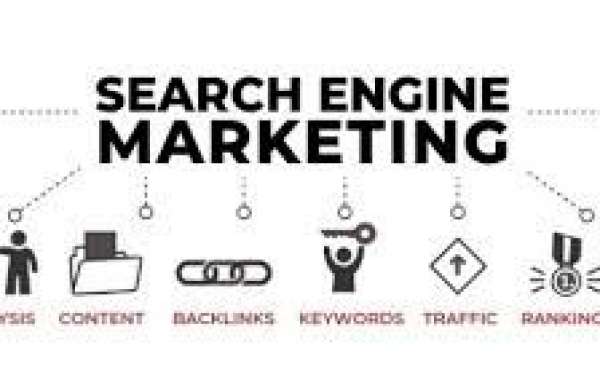Understanding SEO and Its Importance
SEO involves optimizing your website and its content to rank higher on search engine results pages (SERPs). The primary goal is to attract more organic traffic to your site, which means visitors are finding you through search engines like Google rather than paid ads. SEO is critical for several reasons:
- Increased Visibility: Higher rankings in search engine results increase your website's visibility to potential customers.
- Credibility and Trust: Users often trust search engines to provide relevant and credible results. A top ranking can enhance your business's credibility.
- Cost-Effective: Compared to paid advertising, SEO provides a more sustainable and cost-effective approach to driving traffic.
- Targeted Traffic: SEO helps attract visitors who are actively searching for products or services similar to what you offer, leading to higher conversion rates.
Key Elements of SEO Marketing
To effectively leverage SEO marketing, Australian businesses should focus on several key elements:
1. Keyword Research
Keyword research is the foundation of any SEO strategy. It involves identifying the words and phrases potential customers use when searching for products or services related to your business. Here’s how to approach keyword research:
- Identify Core Keywords: Start with broad terms relevant to your business (e.g., "plumbing services" for a plumbing company).
- Use Tools: Utilize tools like Google Keyword Planner, SEMrush, or Ahrefs to discover search volume, competition, and related keywords.
- Localize Keywords: Incorporate location-specific terms (e.g., "plumber in Sydney") to attract local customers.
2. On-Page SEO
On-page SEO refers to the optimization of individual web pages to rank higher and earn more relevant traffic. Key components include:
- Title Tags and Meta Descriptions: Craft compelling and keyword-rich title tags and meta descriptions for each page.
- Header Tags: Use H1, H2, and H3 tags to structure your content and make it more readable.
- Content Optimization: Ensure your content is relevant, engaging, and includes targeted keywords naturally. Avoid keyword stuffing.
- Image Optimization: Use descriptive filenames and alt text for images to improve search visibility.
3. Technical SEO
Technical SEO focuses on improving the technical aspects of your website to enhance its performance and usability. Important aspects include:
- Website Speed: Fast-loading websites provide a better user experience and are favored by search engines.
- Mobile-Friendliness: Ensure your site is responsive and performs well on mobile devices, as mobile searches continue to rise.
- Sitemap and Robots.txt: Submit a sitemap to search engines and use a robots.txt file to guide search engine crawlers.
- Secure Site: Implement HTTPS to secure your site and build trust with users.
4. Local SEO
For Australian businesses targeting local customers, local SEO is crucial. This involves optimizing your online presence to attract local traffic. Strategies include:
- Google My Business (GMB): Create and optimize your GMB listing with accurate business information, including address, phone number, and hours of operation.
- Local Citations: Ensure your business is listed consistently across online directories and local sites.
- Customer Reviews: Encourage satisfied customers to leave positive reviews on Google and other review platforms.
5. Content Marketing
High-quality content is essential for SEO success. Content marketing involves creating valuable, relevant, and informative content to attract and engage your target audience. Consider the following:
- Blog Posts: Regularly publish blog posts that address common questions, industry trends, or customer pain points.
- Infographics and Videos: Use visual content to enhance user engagement and provide valuable information in an easily digestible format.
- E-books and Whitepapers: Offer in-depth resources to capture leads and establish your expertise in your field.
6. Link Building
Link building is the process of acquiring high-quality backlinks from other websites to your own. Backlinks signal to search engines that your content is credible and authoritative. Effective link-building strategies include:
- Guest Blogging: Write guest posts for reputable blogs in your industry and include links back to your site.
- Broken Link Building: Find broken links on other websites and offer your content as a replacement.
- Local Partnerships: Collaborate with local businesses and organizations to gain backlinks from local sources.
Measuring and Analyzing SEO Performance
To ensure your SEO efforts are effective, it’s important to regularly measure and analyze performance. Key metrics to monitor include:
- Organic Traffic: Track the number of visitors coming from search engines using tools like Google Analytics.
- Keyword Rankings: Monitor your rankings for targeted keywords to see how your site performs over time.
- Conversion Rate: Analyze how well your site converts visitors into customers or leads.
- Bounce Rate: Measure the percentage of visitors who leave your site after viewing only one page to assess user engagement.
Challenges and Trends in Australian SEO
Australian businesses may face unique challenges and trends in SEO:
- Competitive Market: With a growing number of businesses online, competition for top search rankings can be fierce.
- Local Search Trends: Understanding local search behavior and preferences is crucial for optimizing local SEO.
- Algorithm Updates: Search engine algorithms frequently change, requiring businesses to stay updated with the latest SEO practices.
Conclusion
SEO marketing is a vital component of a successful digital strategy for Australian businesses. By focusing on keyword research, on-page and technical SEO, local SEO, content marketing, and link building, businesses can improve their online visibility and attract more customers.
Regularly measuring performance and staying informed about industry trends will help businesses stay ahead in the competitive digital landscape. Embrace SEO as a long-term investment in your business’s success, and watch as your online presence grows and thrives.




